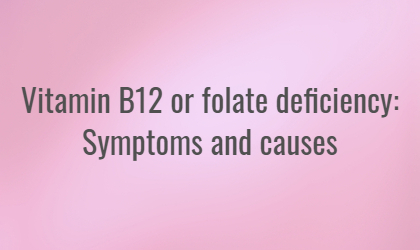
Fats have been wrongly vilified in recent years. The truth is healthy fats – most notably, omega-3 fatty acids – should be an essential pillar of any balanced diet. Omega-3s are found in three different forms: alpha-linolenic acid (ALA), eicosapentaenoic acid (EPA), and docosahexaenoic acid (DHA).
Crucially, DHA contributes to the maintenance of normal vision* and brain function.* Both DHA and EPA also contribute to the normal function of the heart** and the maintenance of normal blood pressure.***
Although oily fish is generally acknowledged as the best source of omega-3, rest assured, you can still obtain relevant amounts from a wide variety of plant-based foods with careful planning. (Omnivores, you may wish to add more of these sources to your diets, too!)
Animal-based vs. plant-based omega-3
Not all omega-3 fatty acids are created equal. Generally speaking, you need a range of ALA, EPA and DHA to support your overall health.
ALA is predominantly found in plant-based sources, like nuts and seeds. EPA and DHA, on the other hand, are mainly found in animal foods, such as oily fish and seafood. For this reason, it can be a little harder for those on vegetarian and vegan diets to get enough EPA and DHA.
Although the body can convert ALA – otherwise known as a ‘parent fatty acid’ – into EPA and DHA, this isn’t the most efficient way to increase your intake of them (1). Ideally, it’s best to get a variety of all three fats from your diet.
Balance is key
Eat diversely is essential for good health, especially for those on plant-based diets who need to think a little more creatively and resourcefully about hitting every nutritional note. And when it comes to omega-3 fatty acids, getting a balance of ALA, DHA, and EPA each week is vital.
Official guidelines suggest a minimum of 250-500mg of combined EPA and DHA daily for adults (2). In contrast, the recommended daily allowance for ALA is around 2 grams for men and 1.6 grams for women (3). Some experts advise vegans to eat double this amount since ALA helps manufacture EPA and DHA in the body, albeit moderately (4).
Vegan omega 3 sources:
Microalgae
Far from being the inconspicuous greenish film that grows on lakes and ponds, microalgae are the only plant-based source of the omega 3 fatty acids, EPA and DHA, making it nutritionally similar to fish oil (5).
Microalgae are tiny plant organisms that contain EPA and DHA; indeed, this is where oily fish obtain them. As a result, microalgae are a direct, pure, and sustainable source of EPA and DHA, therefore cutting out the middleman (or fish!).
Eat it: Supplementation is undoubtedly the best way to add microalgae to your diet. Browse our range of plant-based omega 3s.
Seaweed
Like microalgae, seaweed is one of the few plant groups that contain both EPA and DHA, making it a useful and environmentally-friendly source of omega-3 for people on vegetarian or vegan diets (6).
It’s important to note that the EPA and DHA content vary depending on the particular type of seaweed – be it wakame, kombu, nori, or dulse.
Eat it: Try snacking on a healthful handful of umami-tasting, dried nori, which is available to buy in most health food shops.
Chia seeds
Despite their small size, chia seeds pack a huge punch to your overall omega 3 fatty acid intake. Just one tablespoon of chia seeds meets your daily ALA omega 3 fatty acids allowance (7).
Eat them: Combine three tablespoons of chia seeds, one cup of oat milk, and half a tablespoon of maple syrup in a mason jar. Leave the mixture to set overnight, then top with berries and nut butter for a nutrient-dense, on-the-go breakfast.
Flaxseeds
Nutritional powerhouses, flaxseeds are an excellent source of plant-based omega-3. Just 28 grams of flaxseeds delivers a staggering 6,388mg of ALA omega-3 fatty acids (8).
Eat them: For a clever egg substitute, combine one tablespoon of ground flaxseeds with two and a half tablespoons of water. Leave to thicken for five minutes, and then use in place of one egg.
Ground linseed
Ground linseeds are a brilliant addition to your plant-based nutritional arsenal. According to The Vegan Society, just one tablespoon of ground linseed will meet your daily ALA omega-3 fatty acid needs (9).
Eat them: Try mixing one tablespoon of ground linseed with porridge oats for a healthy and satiating start to your day.
Hemp seeds
Aside from containing supercharged amounts of zinc, iron, and magnesium, hemp seeds are a go-to source of plant-based omega-3 fatty acids. Eating just two tablespoons of hemp seeds each day will fulfil your ALA requirements (10).
Eat them: Add a healthful handful of hemp seeds to homemade granola bars for extra crunch and nutrition. Alternatively, try a spoonful of cold-pressed hemp oil in your smoothies.
Walnuts
Crammed with healthy omega-3 fatty acids, walnuts are the big daddy of the nut world. Just one small handful – around six walnut halves – will satisfy your daily nutritional ALA needs (11).
Eat them: If snacking on straight-up walnuts isn’t your thing, try adding them to salads, sprinkling on porridge, or roasting them into homemade trail mix.
Rapeseed oil
Rapeseed oil is a nutrient-dense source of plant-based omega 3, delivering far more ALA than olive oil. One tablespoon of rapeseed oil contains 4 grams of ALA omega 3 fatty acids
Eat it: Consider using rapeseed oil as your main form of oil in cooking.
* A beneficial effect is obtained with a daily intake of 250mg of DHA
** A beneficial effect is obtained with a daily intake of 250mg of DHA and EPA
*** A beneficial effect is obtained with a daily intake of 3g/day of DHA and EPA
Want to learn more about the differences between omega-3 and omega-6? Read our comprehensive guide here. Alternatively, head back to our dedicated health blog.
References
- Gerster H. (1998) Can adults adequately convert alpha-linolenic acid (18:3n-3) to eicosapentaenoic acid (20:5n-3) and docosahexaenoic acid (22:6n-3)? Int J Vitam Nutr Res. 68(3): 159-73.
- Scientific Opinion on the Tolerable Upper Intake Level of eicosapentaenoic acid (EPA), docosahexaenoic acid (DHA) and docosapentaenoic acid (DPA). (2012). EFSA Journal, 10(7).
- Omega-3 Fatty Acids. (2020, October). National Institutes for Health - Office of Dietary Supplements. https://ods.od.nih.gov/factsheets/Omega3FattyAcids-HealthProfessional/
- Omega-3 and omega-6 fats. (2020). The Vegan Society. https://www.vegansociety.com/resources/nutrition-and-health/nutrients/omega-3-and-omega-6-fats
- Schade, S., Stangl, G.I. & Meier, T. (2020) Distinct microalgae species for food—part 2: comparative life cycle assessment of microalgae and fish for eicosapentaenoic acid (EPA), docosahexaenoic acid (DHA), and protein. J Appl Phycol 32, 2997–3013.
- van Ginneken, V. J., Helsper, J. P., de Visser, W., van Keulen, H., & Brandenburg, W. A. (2011). Polyunsaturated fatty acids in various macroalgal species from North Atlantic and tropical seas. Lipids in health and disease, 10, 104.
- Omega-3 and omega-6 fats. (2020). The Vegan Society. https://www.vegansociety.com/resources/nutrition-and-health/nutrients/omega-3-and-omega-6-fats
- Seeds, flaxseed Nutrition Facts & Calories. (2018). Nutrition Data. https://nutritiondata.self.com/facts/nut-and-seed-products/3163/2
- Omega-3 and omega-6 fats. (2020). The Vegan Society. https://www.vegansociety.com/resources/nutrition-and-health/nutrients/omega-3-and-omega-6-fats
- Omega-3 and omega-6 fats. (2020). The Vegan Society. https://www.vegansociety.com/resources/nutrition-and-health/nutrients/omega-3-and-omega-6-fats
- Omega-3 and omega-6 fats. (2020). The Vegan Society. https://www.vegansociety.com/resources/nutrition-and-health/nutrients/omega-3-and-omega-6-fats
- Oil, canola. (2019). FoodData Central. https://fdc.nal.usda.gov/fdc-app.html#/food-details/172336/nutrients
Related Posts
Disclaimer: The information presented by Nature's Best is for informational purposes only. It is based on scientific studies (human, animal, or in vitro), clinical experience, or traditional usage as cited in each article. The results reported may not necessarily occur in all individuals. Self-treatment is not recommended for life-threatening conditions that require medical treatment under a doctor's care. For many of the conditions discussed, treatment with prescription or over the counter medication is also available. Consult your doctor, practitioner, and/or pharmacist for any health problem and before using any supplements or before making any changes in prescribed medications.

Keri
Keri Filtness has worked in the Nutrition Industry for 19 years. She is regularly called upon for her professional comments on health and nutrition related news. Her opinions have been featured by BBC3, Prima, Vitality, The Mirror, Woman’s Own and Cycling Weekly, amongst others. She has also worked one to one with journalists, analysing their diets and health concerns and recommending changes and additions, where appropriate.



